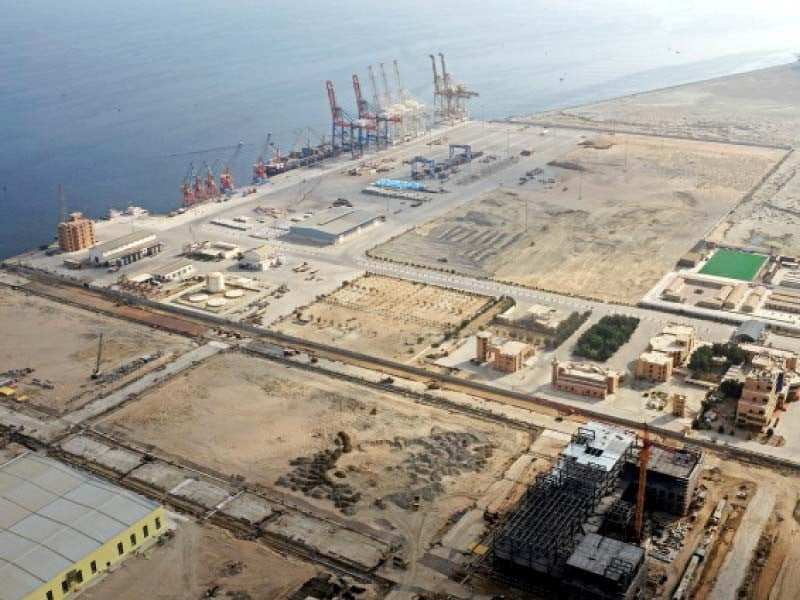
Govt to wind up CPEC authority | The Express Tribune
Planning minister passes instructions to begin process of its abolishment
The new government has decided to abolish the China-Pakistan Economic Corridor (CPEC) Authority amid disclosure that Chinese power producers have shut down 1,980 megawatts of production capacity due to non-clearance of their Rs300 billion dues.
Planning Minister Ahsan Iqbal has passed instructions to the concerned officials to begin the process for abolishing the authority.
We will move a summary seeking Prime Minister Shehbaz Sharif’s approval to abolish the CPEC Authority, Iqbal confirmed to The Express Tribune. “It is a redundant organisation with a huge waste of resources which has thwarted speedy implementation of the CPEC”, said the minister.
The decision to wind up the CPEC Authority was in line with the Pakistan Muslim League-N’s old policy that was never in favour of establishing a parallel setup. Even the PTI government took over two years to set up the authority but it largely remained dormant as the last political dispensation was too not in favour of having another bureaucratic structure.
The last PTI government had reluctantly enacted the CPEC Authority Act in May 2021 but it never filled the chairman position after former chairman Asim Saleem Bajwa resigned.
Planning Minister Ahsan Iqbal on Wednesday took his government’s first briefing on the state of CPEC affairs and the same officials who in the past used to defend CPEC progress told the new regime how things were bad on the ground.
It was revealed during the meeting that over 37% of the installed capacity of the CPEC power projects, or 1,980 megawatts, was out of order due to non-payment of dues to Chinese investors. The meeting was informed that total receivables of the 10 Chinese IPPs have shot up to Rs300 billion, out of which the overdue amount was Rs270 billion.
The three imported coal-fired power plants, Hubco, Sahiwal and Port Qasim have closed one of their two units due to non-availability of the fuel, a senior former official who was responsible for the CPEC told The Express Tribune on condition of anonymity.
He said that the matter had been brought to the knowledge of the then finance minister Shaukat Tarin but the ministry only made partial payment of Rs50 billion.
Similarly, the establishment of a revolving account was pending since the signing of CPEC Energy Projects Framework Agreement in 2014. A day before departure to China to seek a big bailout, the then government had announced to open the account but when a summary was presented before the Economic Coordination Committee for approval on April 1, 2022, Shaukat Tarin deferred the final approval, according to a briefing given to Ahsan Iqbal.
The CPEC projects were also facing delays due to change in taxation policies by the last government in violation of commitments given to China. The PTI government had last year withdrawn the sales tax exemption on imports.
The Supplementary Finance Bill 2021 had introduced 17% on imports, which affected all on-going CPEC IPPs like Azad Pattan, Kohala, Suki Kinari, Gwadar, TEL, ThalNova, Thar Coal Block-I) and, other non CPEC Chinese IPPs, the minister was informed.
These IPPs were exempted from the sales tax during the construction phase, through various power generation policies.
The planning minister on Wednesday showed displeasure over the “sluggish progress” on the CPEC projects.
“How pathetic the delay on CPEC projects which is the potential game changer for the regions, ‘’ said the minister while directing the officials concerned to hold a meeting to review the progress at fortnight.
He added that there was zero progress on industrial zones being set up at Port Qasim, Islamabad and Mirpur, terming the development “unfortunate”. “When you do not value your investors, why would they come for investment”, lamented the minister.
In 2017, the excitement around SEZs was so high that all major foreign direct investors were lining up to be a part of it. However, due to delay in projects Chinese investors moved away, said the minister.
The minister noted that further delay in projects will not be acceptable while directing the officials to ensure the expedition of the work.
The minister also directed all Joint Working Groups (JWGs) of CPEC to pursue their sector specific projects and initiate work on them immediately. The government is planning to hold the next JCC meeting in May.
As per initial CPEC plan, the Special Economic Zones (SEZs) were supposed to be ready by 2020 but unfortunately, in the last four years, there has been zero progress on SEZs, said the minister while adding that the Interior Division should ensure the fool proof security of the Chinese in Pakistan.
During the briefing, the minister directed the officials to complete Zhob-Quetta Road which was initiated under the CPEC project.
Minister Iqbal stressed that all line ministries and departments divert their immediate attention towards SEZs - In this regard, all potential foreign direct investors are to be engaged as well to hear their perspective and needs which can be accounted for in SEZs design.
Published in The Express Tribune, April 21st, 2022.


